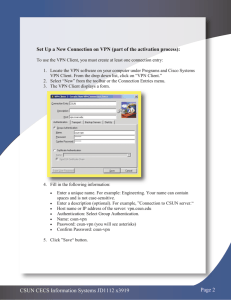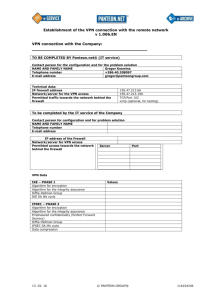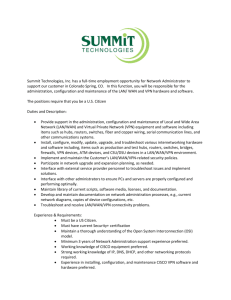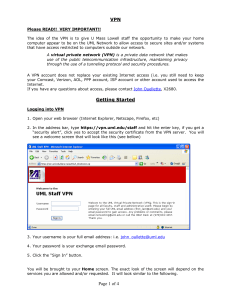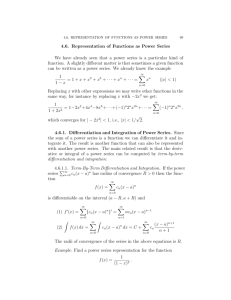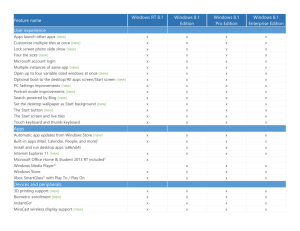Faculty Technology Newsletter
advertisement
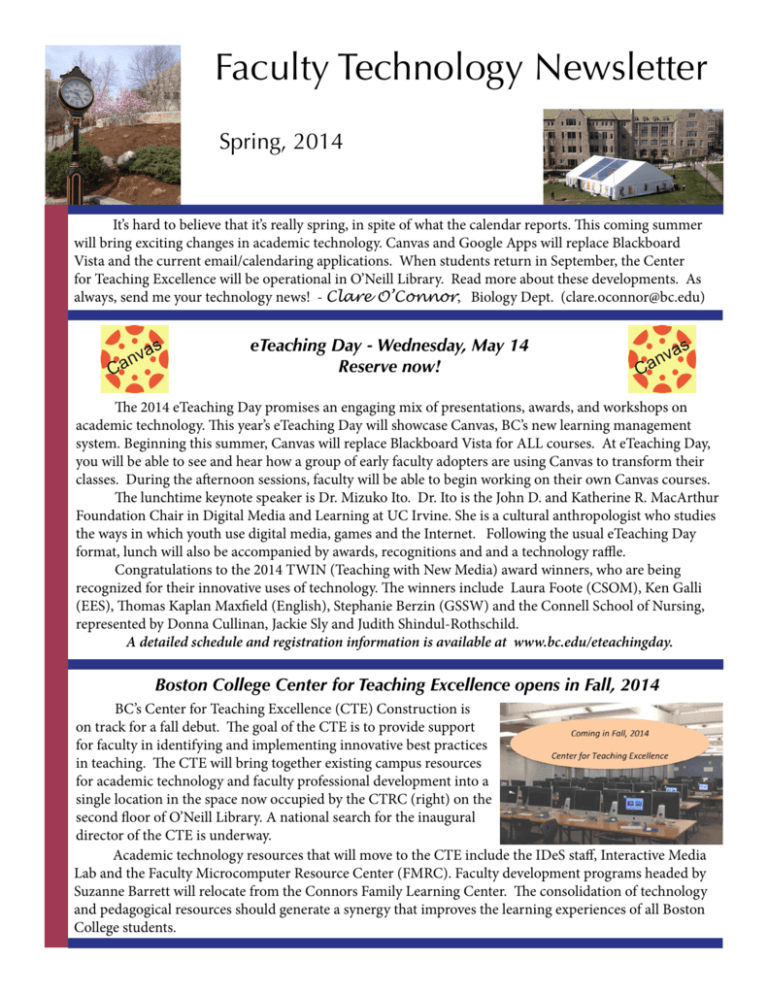
Faculty Technology Newsletter Spring, 2014 It’s hard to believe that it’s really spring, in spite of what the calendar reports. This coming summer will bring exciting changes in academic technology. Canvas and Google Apps will replace Blackboard Vista and the current email/calendaring applications. When students return in September, the Center for Teaching Excellence will be operational in O’Neill Library. Read more about these developments. As always, send me your technology news! - Clare O’Connor, Biology Dept. (clare.oconnor@bc.edu) eTeaching Day - Wednesday, May 14 Reserve now! The 2014 eTeaching Day promises an engaging mix of presentations, awards, and workshops on academic technology. This year’s eTeaching Day will showcase Canvas, BC’s new learning management system. Beginning this summer, Canvas will replace Blackboard Vista for ALL courses. At eTeaching Day, you will be able to see and hear how a group of early faculty adopters are using Canvas to transform their classes. During the afternoon sessions, faculty will be able to begin working on their own Canvas courses. The lunchtime keynote speaker is Dr. Mizuko Ito. Dr. Ito is the John D. and Katherine R. MacArthur Foundation Chair in Digital Media and Learning at UC Irvine. She is a cultural anthropologist who studies the ways in which youth use digital media, games and the Internet. Following the usual eTeaching Day format, lunch will also be accompanied by awards, recognitions and and a technology raffle. Congratulations to the 2014 TWIN (Teaching with New Media) award winners, who are being recognized for their innovative uses of technology. The winners include Laura Foote (CSOM), Ken Galli (EES), Thomas Kaplan Maxfield (English), Stephanie Berzin (GSSW) and the Connell School of Nursing, represented by Donna Cullinan, Jackie Sly and Judith Shindul-Rothschild. A detailed schedule and registration information is available at www.bc.edu/eteachingday. Boston College Center for Teaching Excellence opens in Fall, 2014 BC’s Center for Teaching Excellence (CTE) Construction is on track for a fall debut. The goal of the CTE is to provide support for faculty in identifying and implementing innovative best practices in teaching. The CTE will bring together existing campus resources for academic technology and faculty professional development into a single location in the space now occupied by the CTRC (right) on the second floor of O’Neill Library. A national search for the inaugural director of the CTE is underway. Academic technology resources that will move to the CTE include the IDeS staff, Interactive Media Lab and the Faculty Microcomputer Resource Center (FMRC). Faculty development programs headed by Suzanne Barrett will relocate from the Connors Family Learning Center. The consolidation of technology and pedagogical resources should generate a synergy that improves the learning experiences of all Boston College students. New Eagle VPN provides secure access to BC computing network A virtual private network, or VPN, allows users to access a private computer network over the Internet. VPNs are particularly useful when users are using public Internet connections, such as coffee shops, to access confidential information. BC has just replaced the older BC VPN (which will no longer work) with a new client, Cisco AnyConnect. The new Eagle VPN works on both computers and mobile devices. When a user is off campus, communications to and from BC computers are encrypted, but traffic to non-BC Internet sites is NOT encrypted. Separation of the two information streams in Eagle VPN should make sessions run faster for veteran VPN users. Faculty using Eagle VPN can securely use the Agora portal and work remotely with BC computers that have been set up for file sharing. Note that the VPN is NOT required to access BC email securely. When using the VPN, the icon shown above will appear in the dock or toolbar. Eagle VPN is easy to set up by following the instructions posted at: https://www.bc.edu/content/bc/offices/help-secure/getstarted/network/vpn.html#setup. As the summer gets underway, faculty are likely to be traveling more and using non-secure Internet connections. ITS recommends that faculty be aware of phishing vulnerabilities on external networks. Phishing attempts can appear as “software updates” that appear in pop-up boxes. ITS recommends that faculty update their computers BEFORE traveling. Additional tips for traveling abroad can be found at: http://www.bc.edu/content/bc/offices/help/gethelp/techabroad/travel-security.html Faculty and staff migration will be complete on June 16th Microsoft Exchaange email will disappear on June 16th, when email and calendars switch over to Google Apps. Migration of email content will happen behind the scenes during the early part of June. When the migration is complete, Gmail folders will appear with their same titles as the Outlook folders. Outside of getting used to the new interface in Gmail, users are most likely to be affected by the need for a secondary password that is DIFFERENT from the portal password. A group of faculty and staff have volunteered to serve as “Google Guides” who will act as resources for their departments. Migration of Google Guides email will be completed on May 12th and the Guides will receive some training from ITS. Groups may also request special training sessions from ITS. For more information on the move to Google Apps, consult: http://www.bc.edu/content/bc/offices/help/comm-collab/google-apps.html Best wishes for a summer filled with technology transitions Thanks to Cristina Joy, Barry Schaudt, and Pat DeLeeuw for supplying information and commentary for this newsletter. C.O.

